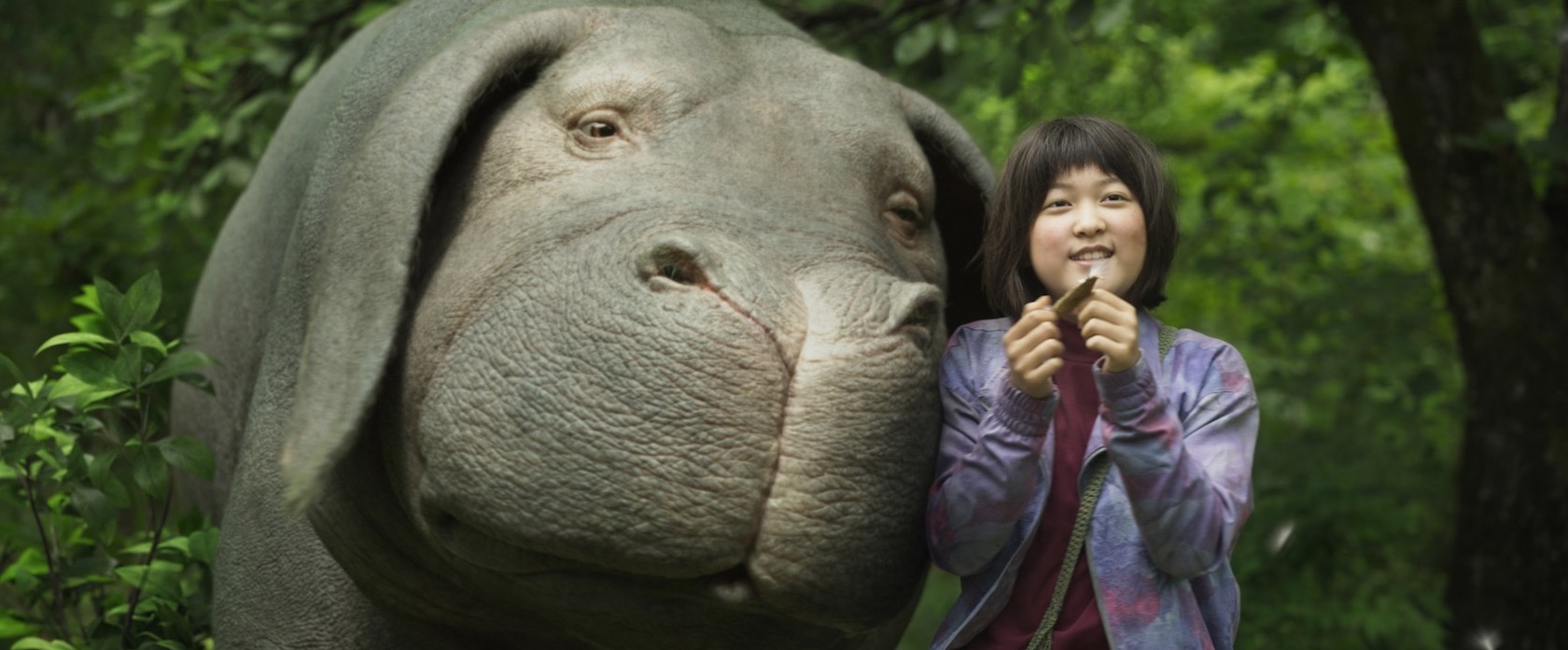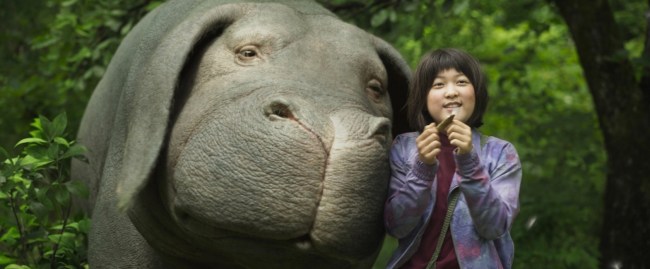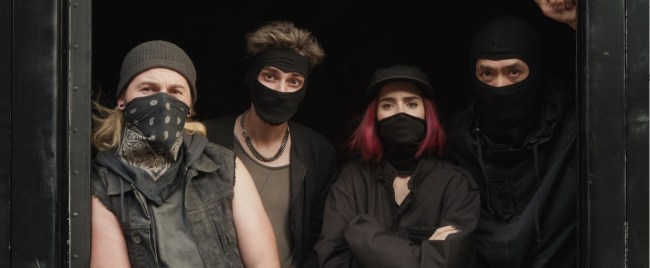Review: Okja Starts off Like Totoro, Then Turns Into Terrifying Corporate Evil That’ll Make You Go Vegetarian
4.5 out of 5 stars.


Okja comes out on Netflix this week, and it’s one of Netflix’s best original films. This isn’t a huge surprise, considering it’s directed by Bong Joon Ho of The Host and Snowpiercer and has a phenomenal cast, but I was taken back by how skillfully the film blends genre. Okja has all the sensibility of a great Bong film, different emotional landscapes, black humor, and a monster-like creature.
However, it’s also his first film that puts a child at the center and Ahn Seo-hyun does a fantastic job as a brave protagonist ready to take on anything for her friend. I’d mention that while the film focuses on a child’s perspective and I referenced Totoro, this is not a movie I’d suggest watching with your child as includes lots of references and portrayals of animal violence and abuse. If you’re looking to convert someone to vegetarianism though, this is your movie. That’s not to say it’s a preachy film about animal rights and veganism, as you’ll enjoy this story even if those are causes you’re subscribed to. The movie is invested in these conversations, but it’s also that—a conversation.
The story begins with a U.S. company called the Mirando Corporation, run by Lucy Mirando played by Tilda Swinton. Mirando claims that they’ve discovered a new breed of super-pigs that grow to be gigantic, and will be the future of eating meat in a more environmentally sustainable way. In a promotion, they’ve sent a super-pig to different farmers around the world in a competition to raise the biggest super-pig. One of those pigs goes to Korea, and is raised as the gentle Okja with Mija and her grandfather.
The story than takes a journey to mountains up in Korea, where Mija, Okja, and her grandfather live off the land. The way Okja interacts with the environment is gorgeous, and it wasn’t surprising when director Hong and Swinton mentioned that they were huge fans of Miyazaki and would sing the Totoro theme on set. The scenes in Korea with the young actress and Okja set up the friendship, familiarity, and love between the two, making viewers understand what a life the two have built together along Mija’s grandfather.
But, as many films do, the conflict of the story begins with a loss as Okja is taken away by the Mirando corporation and prepared to be shipped off to New Jersey. While shortlived, these early scenes make us realize exactly why Mija fights for Okja in so many dangerous situations. Her desperation to protect her best friend is clear in the way she’ll recklessly jump onto trucks, break windows, and flies across the country.
I really did adore the premise that resulted in the plot being a mix of Korea and the United States, as it makes sense within the plot and doesn’t feel forced the way that some Hollywood films films decide to, say, include China simply for the viewership appeal. In fact, it works even better than if, say, the plot were only contained within one country (I’m looking at you Willy Wonka. Chocolates all around the world and all you get are white English-speaking children? I’m calling bullshit).
Bong’s goal was to make a film that “transcends ethnicity and borders,” and Okja accomplishes this with generous character development. The story has three main groups at war, there’s Mirando Corporation, the Animal Liberation Front (ALF), and Mija. While lots of these characters are outrageous and larger-than-life, Bong never fails to give them all some kind of emotional core and meaningful motive. Mirando’s main goal is to take Okja away, but there’s also a second layer of internal conflict where Mirando as CEO is pushing against a terrible family legacy with terrible, but more hidden, methods.
Also part of Mirando is Jake Gyllenhaal’s character, who is absolutely terrifying. He plays Dr. Johnny Wilcox, a celebrity animal personality that feels like someone decided cross the Joker with Steve Irwin. One part unstable mad scientist and another part performer dependent on public adoration, Gyllenhaal disappears into the role the way the talented actor always does.

The ALF, led by Paul Dano’s character, includes Lily Collins, Steven Yeun, Daniel Henshall, and Devon Bostick. While their immediate goal is to destroy Mirando, there’s also varying views within their group about how their love of all living things translates into action. The portrayal of the ALF humorously stereotypical at times, but compelling in its own way. Dano’s character has both a deep and convincing love for every living thing on earth, combined with an occasionally terrifying amount of conviction for his moral code. His evolving protectiveness and respect fir Mija was one of my favorite part of the film. Steven Yeun’s character is occasionally a bit too eager, resulting in laughs, and Lily Collin’s a tough advocate, resulting in cheers.
Finally, there’s Mija who just wants to return to the mountains with Okja, a plan that becomes complicated through the interference of Mirando and the ALF. The duo-language of the script and movement between countries feels fluid and organic, and should be an example going forward of how to approach such a plot. One trope that sometimes irks me is the “foreign character speaks in different language and everyone magically understands,” because language differences or culture clashes are great opportunities for storytelling. In this case, Okja fully embraces that opportunity and uses it for scenes involving deception, emotional impact, and isolation.
Okja comes to Netflix June 28th. Definitely give it a watch!
(image: Netflix)
Want more stories like this? Become a subscriber and support the site!
—The Mary Sue has a strict comment policy that forbids, but is not limited to, personal insults toward anyone, hate speech, and trolling.—
Have a tip we should know? [email protected]